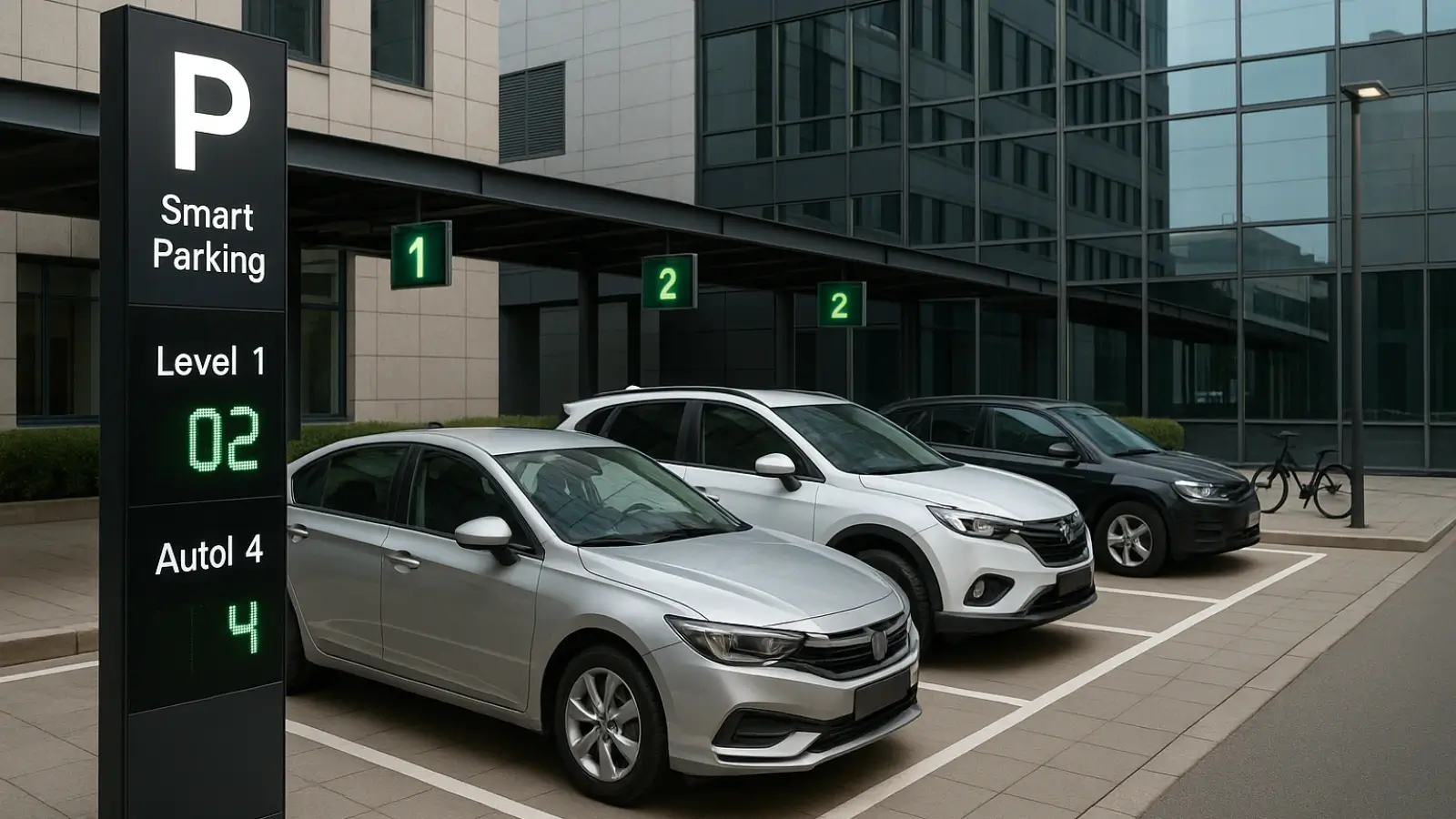In a mobile-first economy, your app strategy can be the catalyst for growth or a barrier to it. As digital experiences become central to customer engagement and operational efficiency, the question of whether to invest in a ready-made or custom mobile app has become a pivotal business decision.
The choice you make affects more than development timelines and budgets—it influences your ability to scale, innovate, and stay competitive. From functionality and flexibility to long-term ownership and ROI, each approach brings distinct trade-offs.
In this article, we’ll explore the critical differences between a readymade or custom mobile app, helping you assess which solution aligns best with your organization’s strategic priorities.
Understanding the Basics
Choosing between custom vs ready-made apps is a crucial decision for business owners aiming to grow and stay competitive in the mobile-first world. Each approach offers unique advantages depending on your goals, timeline, and resources. Understanding how they differ can help you identify which option aligns best with your business vision.
What Are Ready-Made Mobile Apps?
It is known as off-the-shelf or white-label apps, ready-made mobile apps are pre-built platforms designed to serve general use cases. These ready-made or custom mobile apps offer quick deployment and basic functionalities, ideal for businesses seeking low-cost, low-effort solutions. However, customization is typically limited.
What Are Custom Mobile Apps?
Custom mobile apps are developed from scratch to meet specific business needs. Every aspect—from UX to backend logic—is tailored. As a result, custom vs ready-made app solutions become a question of control vs convenience, where custom apps offer complete flexibility and scalability.
Key Differences at a Glance
At a glance, the custom vs ready-made mobile apps debate boils down to trade-offs. While ready-made options provide affordability and speed, custom solutions ensure future-proof performance, tailored features, and full brand alignment.
|
Feature |
Ready-made Apps |
Custom-Mobile apps |
|
Development Time |
Faster (weeks) |
Longer (months) |
|
Initial Cost |
Lower |
Higher |
|
Customization |
Limited |
Highly customizable |
|
Time-to Market |
Quick launch |
Delayed launch |
|
Scalability |
Often limited |
Built for scalability |
|
Ownership & Control |
Shared or limited |
Full ownership and IP rights |
|
Maintenance |
Vendor-dependent |
In-house or contracted |
|
Integration With Business Tools |
Not always compatible |
Seamless and specific |
|
Long-Term ROI |
Moderate |
High (if planned well) |
Pros and Cons of Ready-Made Mobile Apps
Ready-made mobile apps are a quick and budget-friendly way to enter the app market. But beneath the convenience lies a trade-off between control and scalability that businesses must consider.
Benefits of Ready-Made Solutions
Here we have listed down some of the perks of using the read-made application solutions for the new businesses willing to launch their own app.
1. Upfront Investment vs Lifetime Value
While ready-made apps are budget-friendly at first, their limitations often require costly workarounds or full migrations as your needs evolve. These indirect costs add up over time.
The initial investment is offset by savings in licensing fees, reduced dependency on vendors, and the ability to adapt the platform precisely to changing goals. For companies with a long-term strategy, custom apps are not just an expense; they’re a capital investment that compounds in value over time.
2. Control, Security, and Feature Expansion
Custom apps grant you complete control over functionality, data, and security. You can implement your own authentication protocols, encryption standards, and compliance measures tailored to industry regulations.
This is especially important for businesses handling sensitive data or regulated industries like finance or healthcare. Feature expansion is also entirely under your command; new modules or user flows can be added anytime without waiting for vendor updates.
With full autonomy, you’re free to evolve the app with your vision, keeping competitive advantages firmly in your hands.
3. User Retention and Custom Features
Ready-made apps can address general needs, but often lack the personal touch that drives user engagement. Custom apps allow you to build features based on direct user feedback and analytics, resulting in highly relevant and sticky experiences.
Tailored interactions, smart notifications, and behavior-driven design significantly improve retention rates and lifetime user value.
4. Cost of Updates and Scalability Over Time
Updating a custom app may require developer input, but the process aligns entirely with your priorities. You decide the roadmap, budget allocation, and release schedule. This prevents unwanted disruptions or unnecessary features. Ready-made platforms, in contrast, roll out universal updates that may not fit your business, or worse, introduce breaking changes.
Limitations and Long-Term Drawbacks
Even though the ready-made applications might sound like a less of hassle but it comes with its own set of limitations and long-term drawbacks and here we have listed them for you to know:
1. Limited Customization
One of the biggest drawbacks is the inability to tailor the app to your specific business needs. You're often confined to the features and layouts the vendor provides. Any deep customization, whether visual or functional, may either be impossible or prohibitively expensive, limiting how well the app can reflect your brand or unique value proposition.
2. Vendor Lock-In
When you choose a ready-made app, you're dependent on the vendor for everything from uptime and support to security updates. If the provider changes their pricing, discontinues features, or even shuts down, your business can be left in a precarious position with limited alternatives or migration paths.
3. Incompatibility with Existing Systems
Ready-made apps are generally designed for broad compatibility rather than seamless integration. This means they may not connect well with your existing CRM, ERP, or custom backend tools. You may end up needing costly workarounds or manual processes to bridge the gap, which defeats the purpose of automation.
4. Generic User Experience
A shared platform often means a shared look and feel. When multiple businesses use the same app template, it becomes hard to stand out. This lack of differentiation can dilute your brand’s presence and reduce user engagement, especially if competitors offer a more personalized experience through custom-built apps.
|
Factor |
Ready-Made Apps |
Custom Apps |
|
Time to Launch |
Faster to deploy |
Takes longer, but built to fit your needs |
|
Upfront Investment |
Lower initial cost |
Higher initial cost, but long-term value |
|
Feature Flexibility |
Fixed features; limited customization |
Full control over features and expansion |
|
Vendor Dependency |
Relies on vendor for updates and support |
Owned and controlled by your business |
|
Security & Compliance |
General standards from provider |
Tailored to your industry and data needs |
|
System Integration |
May not integrate smoothly |
Designed to fit your internal systems |
|
User Experience |
Generic design; harder to stand out |
Personalized design and brand consistency |
|
Scalability Over Time |
May need workarounds or replacement |
Built to grow with your business goals |
Pros and Cons of Custom Mobile Apps
Custom mobile apps provide full ownership and flexibility, but that power comes with a price. It's important to weigh these pros and cons in the context of your resources, timelines, and business complexity. This section unpacks the key benefits and challenges of going custom.
Strategic Advantages of Custom Development
Choosing a custom mobile app development company opens the door to several strategic benefits that go beyond surface-level functionality. Here’s what makes it a preferred option for growth-focused businesses.
1. Tailored Features
Custom apps are designed specifically around your business logic, user journeys, and operational goals. This ensures that every feature, workflow, and interaction is optimized for performance, user experience, and business value. Unlike ready-made apps, there's no need to compromise or adjust your process to fit someone else’s product.
2. Scalability
A well-architected custom mobile app can grow with your business. Whether you need to add new user roles, modules, or serve more customers over time, a custom-built solution is made to scale. This long-term flexibility helps avoid performance bottlenecks and costly migrations later down the line.
3. Seamless Integrations
One of the most powerful advantages is the ability to integrate seamlessly with your existing tech ecosystem. From CRMs and ERPs to payment gateways and analytics platforms, custom apps are built to communicate effortlessly with the tools you already use, saving time, reducing errors, and improving workflow automation.
4. Brand Consistency
Every touchpoint in a custom app can be aligned with your brand’s identity colors, fonts, tone, and overall experience. This not only builds stronger recognition but also boosts user trust and engagement. In competitive markets, a tailored brand experience can be a major differentiator.
Challenges and Considerations
As with any high-impact strategy, custom development involves certain risks and operational hurdles. Without proper planning and alignment, these can slow down time-to-market or inflate budgets. Let’s look at the most critical considerations to factor into your decision-making.
1. Higher Initial Costs
Building a custom app is a significant investment. It typically involves hiring skilled developers, UX/UI designers, testers, and project managers. These upfront costs can be a hurdle, especially for startups or smaller businesses, but they also reflect the value of a purpose-built solution.
2. Longer Development Timeline
Unlike ready-made apps, custom development doesn’t happen overnight. Depending on the app’s complexity and features, it can take several months to go from concept to launch. This extended timeline requires thorough planning, ongoing feedback loops, and stakeholder commitment.
3. Ongoing Management
Post-launch, a custom app requires regular updates, bug fixes, security patches, and performance optimization. Whether managed internally or via a development partner, this ongoing effort needs dedicated resources and a maintenance strategy to keep the app competitive and reliable.
4. Risk of Overengineering
With the freedom of custom development comes the risk of adding too many features or building unnecessarily complex systems. Without clear goals and user feedback, it’s easy to overspend on development or lose focus. Strategic planning and agile development help mitigate this risk.
Decision-Making Factors- Ready-Made vs Custom Mobile Apps
When deciding between ready-made and custom mobile apps, several strategic considerations come into play. Beyond surface-level features, these factors impact how well your app aligns with long-term business growth, operations, and customer experience.
1. Budget and Cost Expectations
If you're working with limited capital, a ready-made app may seem attractive. However, it's essential to look beyond upfront costs. Ready-made solutions often come with recurring licensing or subscription fees that can add up over time.
Conversely, custom apps require a higher initial investment but can result in cost savings in the long run by eliminating dependence on third-party vendors.
2. Timeline and Urgency
When speed is a priority, whether to meet a marketing deadline or validate a concept, ready-made solutions offer a clear advantage, often going live within weeks. This makes them ideal for short-term objectives or market testing, though it often comes at the expense of flexibility and differentiation.
However, for long-term digital strategies, custom and ready-made apps differ significantly in their ability to deliver sustainable value. While custom development takes more time, it allows for detailed planning, iteration, and user-centric design—resulting in a solution that’s better aligned with your business goals and future growth.
3. Customization Needs and Business Model Fit
If your business relies on unique processes or competitive differentiators, choosing between a readymade or custom mobile app becomes critical. Most off-the-shelf solutions are built for general use cases and often lack the flexibility to adapt to specialized workflows or industry-specific needs—leading to workarounds or feature compromises.
A custom mobile app for your business, on the other hand, allows you to innovate around your business model. From tailored user roles to branded experiences and integrated systems, it empowers you to build an application that supports your strategic goals and evolves as your business grows.
4. App Scalability and Future Growth
Apps are not static; they evolve. As your business grows, so will your user base, feature requirements, and data complexity.
Ready-made apps often hit scalability limits, forcing businesses to migrate or redevelop later. Vendor-defined architectures may not handle high loads or multi-tenant models effectively.
Custom apps allow for continuous feature expansion and performance upgrades. They can be built with scalability in mind from day one using cloud-native frameworks, modular architecture, and optimized databases.
This future-proofs your app and provides confidence that it will support you through every growth stage.
5. Maintenance and Ownership Control
Custom apps give you control over bug fixes, updates, and feature additions. With ready-made apps, you're at the mercy of the vendor's roadmap. That means you have to wait for updates, even if they don’t align with your priorities.
Owning the codebase also gives you flexibility in how and when updates are implemented. You can respond to user feedback quickly, ensure security compliance, and evolve the app without external dependencies. While this requires technical resources, the autonomy and reliability it brings often outweigh the effort.
6. Target Audience Experience
User experience defines engagement and retention. Custom apps offer personalized UX that reflects user behavior and preferences. You can craft tailored navigation, content flows, and feature sets that resonate with specific user segments.
Ready-made apps, by contrast, offer a one-size-fits-all experience that may not meet user expectations or your brand identity.
A generic UI can lead to lower satisfaction and reduced loyalty. Investing in a custom experience shows users that you understand their needs, resulting in stronger engagement and conversion.
7. Integration with Existing Tools and Systems
Custom apps can be tailored to fit perfectly into your existing digital ecosystem. This includes seamless data syncing with CRMs, ERPs, analytics tools, or payment gateways. Such integration enables real-time insights, automates workflows, and reduces manual tasks.
With ready-made apps, compatibility is not always guaranteed, and workarounds can get messy. Limited APIs, closed architectures, or vendor restrictions may block vital integrations. This disconnect can create inefficiencies and frustrate teams. For businesses with established tech stacks, custom apps provide a smoother, more efficient path.
The debate around custom vs ready-made mobile apps goes far beyond upfront costs—it’s a strategic decision about aligning your app with your long-term business model and goals.
Ready-Made vs Custom Mobile Apps: Strategic Comparison
Here’s a strategic comparison to help you understand which approach better suits your business needs.
|
Decision-Making Factor |
Ready-Made App |
Custom App |
|
Budget and Cost Expectations |
Lower upfront cost; ongoing subscription or licensing fees add up over time. |
Higher initial investment; potential long-term savings by eliminating third-party dependencies. |
|
Timeline and Urgency |
Faster launch; ideal for short-term goals or MVPs. |
Longer development time; better for long-term strategies and future-proofing. |
|
Customization & Business Fit |
Limited flexibility; may require workarounds to fit your model. |
Tailored to unique workflows, user roles, and strategic goals. |
|
App Scalability and Growth |
Often restricted by vendor architecture; costly to scale or adapt. |
Built to scale from day one with modular, cloud-native architecture. |
|
Maintenance and Control |
Updates and fixes depend on the vendor; limited ownership. |
Full control over codebase, update schedules, and roadmap. |
|
User Experience |
Generic design; lacks personalization and brand alignment. |
Custom UX built around audience behavior and brand identity. |
|
Integration with Existing Systems |
Compatibility may be limited; vendor restrictions can block integration. |
Seamless integration with CRMs, ERPs, analytics, and other business tools. |
Long-Term ROI: Which Option Pays Off?
Beyond the upfront investment, think about the lifecycle of the best Custom Vs Ready-made app solutions. Which solution offers the greatest return over time in terms of flexibility, performance, and revenue generation?
1. Upfront Investment vs Lifetime Value
While ready-made apps are budget-friendly at first, their limitations often require costly workarounds or full migrations as your needs evolve. These indirect costs add up over time. On the other hand, custom apps provide higher lifetime value by offering long-term flexibility, brand consistency, and full ownership.
The initial investment is offset by savings in licensing fees, reduced dependency on vendors, and the ability to adapt the platform precisely to changing goals. For companies with a long-term strategy, custom apps are not just an expense; they’re a capital investment that compounds in value over time.
2. Control, Security, and Feature Expansion
Custom apps grant you complete control over functionality, data, and security. You can implement your own authentication protocols, encryption standards, and compliance measures tailored to industry regulations. This is especially important for businesses handling sensitive data or regulated industries like finance or healthcare.
Feature expansion is also entirely under your command; new modules or user flows can be added anytime without waiting for vendor updates. With full autonomy, you’re free to evolve the app with your vision, keeping competitive advantages firmly in your hands.
3. User Retention and Custom Features
Ready-made apps can address general needs, but often lack the personal touch that drives user engagement.
Custom apps allow you to build features based on direct user feedback and analytics, resulting in highly relevant and sticky experiences. Tailored interactions, smart notifications, and behavior-driven design significantly improve retention rates and lifetime user value.
By focusing on what your users actually need and iterating based on real usage patterns, you create an app that fits them perfectly. This personalized experience fosters loyalty and trust in ways that generic apps simply cannot.
4. Cost of Updates and Scalability Over Time
Updating a custom app may require developer input, but the process aligns entirely with your priorities. You decide the roadmap, budget allocation, and release schedule. This prevents unwanted disruptions or unnecessary features.
Ready-made platforms, in contrast, roll out universal updates that may not fit your business, or worse, introduce breaking changes.
As you grow, a custom solution scales with your architecture from user volumes to performance enhancements, avoiding the need for costly re-platforming. Although there are ongoing costs, they’re strategic and under your control.
5. Brand Value and Competitive Differentiation
A custom-built app is an extension of your brand. From visuals and tone to navigation and features, every element can be crafted to reflect your identity. This enhances brand recognition and helps you stand out in a crowded market.
It also signals professionalism and commitment to user experience. In contrast, ready-made apps often carry generic designs or third-party branding, making it harder to differentiate.
When customer perception matters, custom development gives you the creative freedom to align technology with your unique value proposition.
Common Mistakes to Avoid While Choosing
Making the right app decision goes beyond comparing features or prices. Many businesses fall into avoidable pitfalls during the selection process, often due to urgency, limited foresight, or budget constraints.
Below are some of the most frequent mistakes that can derail your app journey and how to avoid them.
1. Choosing Based Solely on Budget
Budget is important, but it shouldn't be the only factor. Opting for the cheapest solution can lead to hidden costs, limited flexibility, and missed growth opportunities. Consider the app's total cost of ownership, including licensing, updates, and integrations. Choosing based on long-term ROI rather than short-term savings leads to better outcomes.
2. Overlooking Future Business Needs
Your app should evolve with your business. Ignoring future needs can result in platform limitations or redevelopment costs. Always assess how scalable and adaptable the app is. Ask: Will it support new features, more users, or integration with future tools?
3. Ignoring User Experience and Brand Differentiation
A polished, intuitive user interface significantly affects engagement and retention. Ready-made apps may lack the UX flexibility to reflect your brand identity or user preferences. A great app not only functions well but also feels like a natural extension of your business.
4. Underestimating Integration Requirements
Many businesses underestimate how critical integrations are to their digital ecosystem. A ready-made app may not integrate seamlessly with your CRM, payment systems, or analytics. This leads to manual workarounds and operational inefficiencies. Always evaluate integration support upfront.
5. Not Considering Post-Launch Support and Maintenance
Post-launch, every app requires bug fixes, updates, and compliance checks. If your team can't support these internally, ensure your vendor or development partner can. A lack of support leads to app degradation, security risks, and poor user experiences.
These mistakes often make businesses rethink their Custom vs Ready-Made Mobile Apps choice post-launch when it's more costly to change direction.
Hybrid Approach: Can You Combine Both?
For businesses torn between the speed of ready-made apps and the flexibility of custom development, a hybrid approach offers a practical middle ground. Instead of choosing one path exclusively, you can strategically combine both to balance cost, time, and scalability. Let’s explore how this blended strategy works and when it makes the most sense.
a) Using Readymade MVP + Custom Scaling
Many startups use a ready-made or white-label app to validate ideas quickly. Once traction is proven, they migrate to a custom solution tailored for scale, performance, and branding. This allows for a fast go-to-market with minimal risk.
b) When and How a Phased Approach Works
Begin with a minimal custom backend while using a ready-made frontend. Over time, replace frontend modules with custom components. This phased approach lets you spread development costs while gradually enhancing user experience and control.
c) Balancing Cost, Speed, and Flexibility
The hybrid model enables quick deployment without long-term lock-in. Use off-the-shelf components where customization is non-essential, and reserve budget for critical, brand-specific features. This balances early speed with strategic control.
d) Leveraging APIs and Modular Architecture
You can enhance a ready-made solution using third-party APIs or build custom modules on top. Microservices and modular architecture make it easier to blend pre-built tools with custom features, giving you the agility to evolve without starting over.
Conclusion
The debate on ready-made vs custom mobile apps isn’t just a technical one—it’s a business-defining one. The wrong move can result in missed opportunities, technical debt, or loss of competitive edge.
If speed and simplicity are your current needs, Ready-Made Mobile Apps offer a solid start. But if your long-term vision requires flexibility, innovation, and control, custom development is the wiser investment.
Still undecided? Consider speaking with development partners like DevStory who specialize in both ready-made or custom mobile apps. We can help craft a phased or hybrid approach aligned with your roadmap, ensuring your app delivers value both today and tomorrow.

















